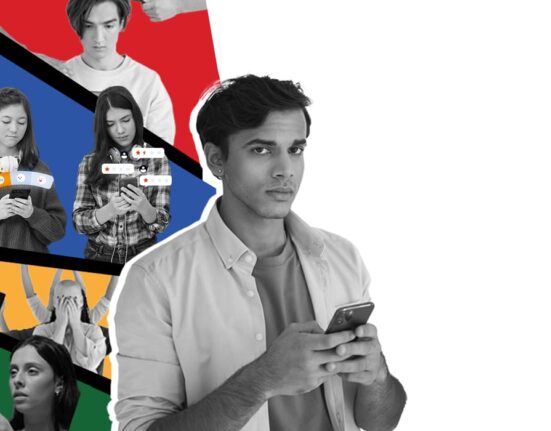Your 20s are the years to do it all, to feel it all and well, just figure your whole life out in just less than 10 years. Although it sounds dauntingly exciting at first, it’s a lot for our minds to take in. It’s almost as if we have hyped this prime decade so much that we forget to take it slow when the time comes to ‘perform’. With friends finding their own path to parents getting older, seeing others climb the success ladder under a glass ceiling, shifting cities and some overall hunger for independence are all happening at the same time.
The pressure and variety of expectations can automatically make one feel overwhelmed. This leaves us feeling a range of emotions with highs and lows. Almost like we’re not doing enough and feeling like we’ve been left behind constantly. Vulnerable to the real world, feeling lost, confused, overwhelmed, anxious and just not knowing your true identity is a part of the job description. But why does it feel this way? This article explores the psychology of feeling behind in your 20s, with greater emphasis on social comparison, identity diffusion and how it impacts mental health and well-being.
Read More: What Burnout in Your 20s Reveals About Modern Adulthood
The Need to do it all vs the Fear of Failure
When one is navigating through their 20s, there are a lot of factors that in. Multiple career opportunities, people getting promotions, upskilling, being afraid of being seen trying and more. This can result in imposter syndrome, catastrophising, and even overgeneralising. If feeling insecure and not enough despite giving your best feels familiar, that’s imposter syndrome. Usually linked with perfectionism, lack of self-confidence in ability, and constantly worrying that the effort put in of any kind isn’t really valid or enough (Cuncic, 2024b).
Connected to the same is catastrophizing, as in imagining the worst-case scenario can lead to anxiety and stress. Last but not least is overgeneralising an experience and your thoughts. It basically means when cognitively a person refers to a single event or experience as the rule or as how it’s supposed to be(APA Dictionary of Psychology, n.d.-f). This could be applied to failures, confusion, the way a workplace or degree works, a lens to look and judge people for their nature and more.
Are They Doing Better Than I?- The Social Comparison Trap
We often find ourselves in the trap of comparing ourselves and the way we perform with others around us or even on social media to better or worse our self-image and confidence. This is explored in the social comparison theory by Leon Festinger. He evaluated how individuals have this innate need and want to judge and evaluate themselves by comparing themselves to others.
The views that others hold of us and so on (MSEd, 2024e). The upward social comparison and the downward social comparison where one thinks they are comparing themself with someone doing better than them and worse, respectively. This can cause worry, feelings or unfulfillment and imposter syndrome. Often, we don’t feel satisfied in the moment and feel like we’re being left behind.
Read More: Trapped in Social Comparison?: The Psychology Behind Luxury Consumption
Who am I Becoming? – Identity Diffusion and Existential Anxiety, Quarterlife Crisis
They say your 20s are like your second puberty. Well, this means identity confusion and an overall exploratory phase. Identity diffusion means not exactly having a clear self-concept. In a world where you can be anybody, who do you want to be? Not knowing who you are or are becoming. This can be scary and cause mental health disturbances like stress, anxiety, depression, and even. Although it begins to emerge during adolescence, you often feel its impact more strongly in your 20s(Gupta, 2023).
A quarterlife crisis is no fun. A core way of describing feeling behind in your 20s. This leads us to explore existential anxiety. In the simplest words, it means the anxiety that comes with newfound freedom, who you are and what meaning your purpose and life really hold (Cuncic, 2024a).
Read More: Importance of Finding Passion and Purpose in Life
Truth About the Chase towards Climbing the Success Ladder
The chase and assumption that achieving a set goal will bring you happiness, only to never really be satisfied, is known as the arrival fallacy (Wisner, 2023). In your 20s, one is vulnerable to wanting to climb that ladder, get that promotion, do better and become better. By setting goals, one feels the power to become happy again. However, when we achieve one goal, we often dismiss it and immediately jump to the next. Once again, not slowing down and falling for the rat race. What can really help is Mindfulness Interventions and even just slowing down, appreciating the smallest wins.
Spotlight Effect
You might also feel like the spotlight is on you to perform. This is known as the spotlight effect. Social anxiety often pairs with this, and you can apply it to life in your 20s as well. When the world judges you for being yourself and for the work you do, and puts you under a microscope, you feel vulnerable (Cuncic, 2023c). This leads to anxiety. If taken optimistically, it can also be a solution for getting out of the ‘feeling left out’ or ‘behind ’ phase by taking it as an opportunity to prove yourself to yourself.
Effect of Instant Validation vs Delayed Gratification
Well, who doesn’t like instant validation? Feeling seen, valued, and appreciated. What can be both helpful and challenging in your 20s is the experience of delayed gratification. Here, one delays the process of getting an instant short-term reward in the hope and persuasion of something bigger or greater for the long term (MSEd, 2023d). This is, in fact, essential for growth, self-image and patience that could at first make you feel like you’re left behind in the wait of something else, but helpful in the long term
Impact on Mental Health and Conclusion
Overall, feeling lost in your twenties is real and new, but you can overcome it with time. Doing what you really like, receiving and offering community support, being patient and being honest to your real self matter. To add to this, techniques like CBT, mindfulness and more can greatly help in making your 20s more satisfying and fulfilling.
FAQs
1. Why does achieving short-term goals in your 20s not feel sufficient?
In your 20s, one can delay the process of getting an instant short-term reward in the hope and persuasion of something bigger or greater for the long term (MSEd, 2023d). This delayed gratification is, in fact, essential for growth, self-image and patience.
2. What is identity diffusion in your 20s?
Identity diffusion means not exactly having a clear self-concept. In a world where you can be anybody and pursue anything, not knowing who you are or are becoming, along with societal pressure, can lead to confusion and anxiety.
3. What can help make individuals more present?
Mindfulness interventions, Cognitive Behavioural therapy, engaging in hobbies, communicating with the people around you and from diverse sections can help ease the stress of feeling behind and FOMO.
References +
Cuncic, A., MA. (2024b, September 23). Is impostor syndrome holding you back from living your best life? Verywell Mind. https://www.verywellmind.com/imposter-syndrome-and-social-anxiety-disorder-4156469
APA Dictionary of Psychology. (n.d.-f). https://dictionary.apa.org/overgeneralization
MSEd, K. C. (2024e, May 21). How social comparison theory influences our views on ourselves. Verywell Mind. https://www.verywellmind.com/what-is-the-social-comparison-process-2795872
Gupta, S. (2023, May 18). Identity Diffusion: Unravelling the Mystery of Self-Concept. Verywell Mind. https://www.verywellmind.com/identity-diffusion-causes-effects-how-to-find-yourself-7499502
Cuncic, A., MA. (2024a, August 5). Existential crisis: What it is and how to cope. Verywell Mind. https://www.verywellmind.com/coping-with-existential-anxiety-4163485
Wisner, W. (2023, May 8). Arrival fallacy: Will reaching a goal make you happy? Verywell Mind. https://www.verywellmind.com/what-is-arrival-fallacy-6561079 MSEd, K. C.
(2023d, November 5). The meaning of delayed gratification. Verywell Mind. https://www.verywellmind.com/delayed-gratification-why-wait-for-what-you-want-279542













Leave feedback about this